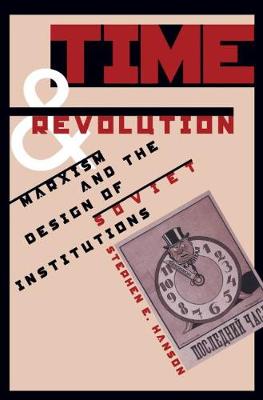Stephen Hanson traces the influence of the Marxist conception of time in Soviet politics from Lenin to Gorbachev. He argues that the history of Marxism and Leninism reveals an unsuccessful revolutionary effort to reorder the human relationship with time and that this reorganization had a direct impact on the design of the central political, socioeconomic, and cultural institutions of the Soviet Union from 1917 to 1991. According to Hanson, westerners tend to envision time as both rational and inexorable. In a system in which 'time is money,' the clock dominates workers. Marx, however, believed that communist workers would be freed of the artificial distinction between leisure time and work time. As a result, they would be able to surpass capitalist production levels and ultimately control time itself. Hanson reveals the distinctive imprint of this philosophy on the formation and development of Soviet institutions, arguing that the breakdown of Gorbachev's perestroika and the resulting collapse of the Soviet Union demonstrate the failure of the idea.
- ISBN13 9780807823057
- Publish Date 20 January 1997
- Publish Status Out of Print
- Out of Print 30 April 2017
- Publish Country US
- Imprint The University of North Carolina Press
- Format Hardcover
- Pages 280
- Language English
